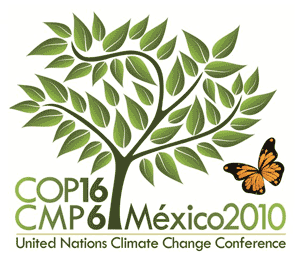
The prognosis was not looking good in Cancun, but eventually the states participating in the United Nations climate summit were able to reach a general agreement to set the foundations for a global climate regime, despite the opposition of one country, Bolivia.
In the last session, which lasted 10 hours longer than planned, 193 of the 194 parties agreed that the sixteenth president of the Conference of the Parties (COP 16), Mexican Foreign Minister Patricia Espinosa, would announce the creation of the “Agreements in Cancun for a new era of international cooperation on climate change.”
With Bolivia opposing, the draft with the “balanced package” of proposals on mitigation, adaptation, financing and technology transfer, was adopted “by consensus” according to Patricia Espinosa.
The representative of the Andean country, Paul Solin, amid boos, argued that the agreement represented a step backward in the fight against climate effects and that its adoption represented “an attack” against the rules of the United Nations Framework Convention Climate Change (UNFCCC).
Patricia Espinosa said that the interpretation of Bolivia would be recorded, but agreed “with some delegations that the rule of consensus does not mean unanimity or the possibility that a delegation could seek to impose a veto on the will” of 193 parts.
The text reflects the need for improved reduction commitments needed to stabilize global temperatures, compared to the promises made by countries.
Green Fund
The “green fund” proposal was approved. This commits developed countries to mobilize U.S. $100,000 million a year starting in 2020, is an agreement for reducing emissions from deforestation and degradation (REDD), and states that emission goals are verified in a framework of the Convention, not only within national projects.
Also included is a commitment to establish an extension-not yet defined, to the Kyoto Protocol, which alone requires 36 developed countries to lower their emissions in the period 2008-2012.
At an informal meeting which began at midnight on Saturday, countries like the U.S., Japan, China, India and Venezuela supported the basic document of the agreement, even though throughout the two weeks they had presented different arguments hindering negotiations.
“We are in a position to express our strong support for the draft text that we hope will be adopted as is,” said Rui Matsumoto, Japanese Environment Minister.
Almost all countries expressed that the document was “not perfect,” but good enough to set the foundation for a legally binding agreement due to the COP 17 in Durban, South Africa, to be held in 2011.
After the meeting, Mexican President Felipe Calderon sent a message to congratulate the parties who said that these agreements were reached to change the “feeling of a collective inability to regain hope in multilateralism.”
The leader for the Global Climate Initiative of the World Wildlife Fund (WWF), Gordon Shepard, said in a first reaction that the Mexican presidency deserves a lot of the credit for the good handling of negotiations: “They helped to unite the Governments, especially on the difficult issues; and created an atmosphere of negotiation, inclusive and efficient, which helped the countries to maintain confidence in the process” to reach an agreement.
By Tania L. Montalvo, translated by TCRN
